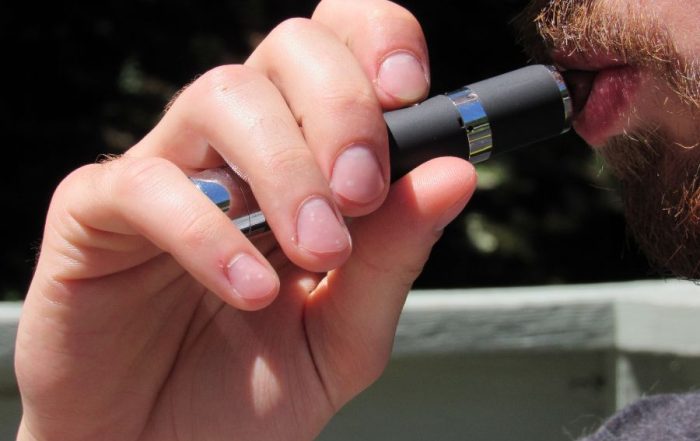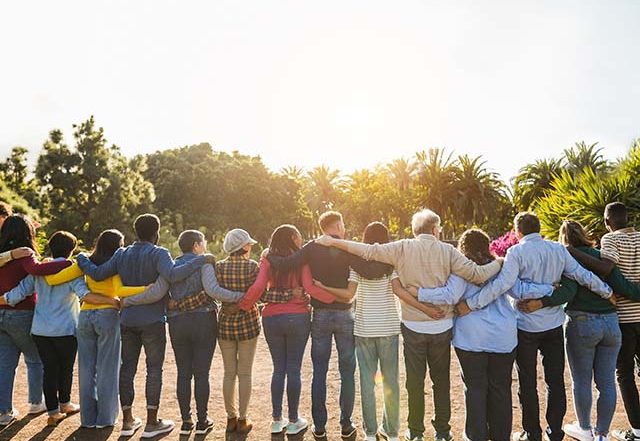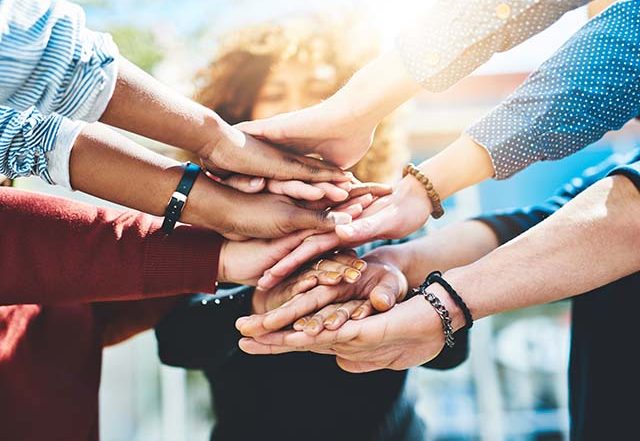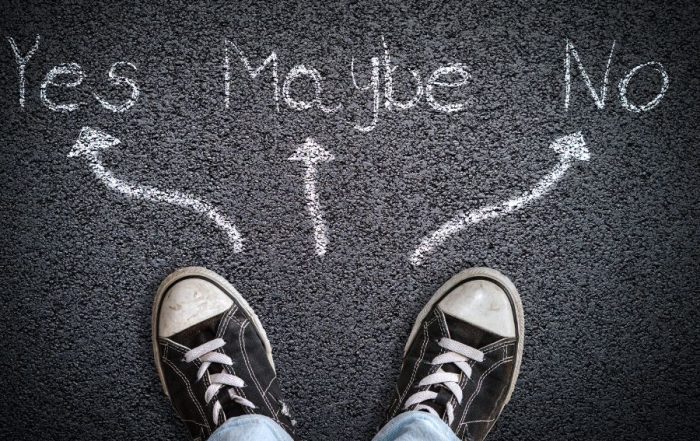Sobriety Loses Its Priority (SLIP): Meaning, and What to Do About It
We’ve all been there – after a period of time in recovery, things start going well, we regain stability, and we begin to regain some of the elements of our lives that we had lost. At times during this period, it’s common for us to lose sight of what got us that precious serenity and stability in the first place. In other words, sobriety loses its priority in our lives.
As a long-term recovery program, we get to coach and work with folks through these phases all the time. Here we’ll provide you with some practical suggestions to get back “on the beam,” so to speak.
“Sobriety loses its priority” means that maintaining sobriety is no longer the main focus, which can lead to a slip (short relapse). This shift happens when other concerns take precedence over recovery, causing individuals to neglect important recovery activities like attending meetings and seeking support.
In this article, we’ll cover what the acronym “SLIP” means, and provide some action steps if you’ve found yourself in such a situation.
What is a SLIP in recovery?
One of the great paradoxes of recovery is that as we grow in time sober, we regain elements of our lives that inevitably distract us from the things that got us our success in the first place. This is exactly what we mean by the acronym SLIP: sobriety loses its priority.
In most recovery contexts, you’ll hear the term “slip” in reference to a short relapse. What this generally means is that an individual has returned to drug or alcohol use briefly and quickly returned to recovery.
Is it possible for sobriety to lose it’s priority without getting high?
One thing we’d like to point out is that we don’t necessarily have to get high or drink before we realize our sobriety has lost the number one spot in our lives. Many folks will refer to this realization as being “off the beam.” If this describes your situation, we urge you to employ the steps below before a relapse occurs. There’s no reason to play the tape out until we’re on the brink of using again, if it can be avoided.
Another important point is that this can happen to people in both early sobriety as well as long-term recovery. There are many factors that can play a role in this, but they all had one thing in common: that person had lost their focus on their priorities.
How to prioritize sobriety again
For many folks, a slip isn’t necessarily indicative of a desire to “go back out.” If you find yourself in this position, the first thing you should do is take it easy on yourself. You certainly aren’t the first person to take a misstep in recovery, and you won’t be the last! (As is often said in the rooms, we don’t shoot our wounded!)
Regardless of sober time, recovery can be a “two steps forward, one-step back” game. If you’re coming back from a slip, here are some suggestions of things you can do right away to make sobriety your top priority and to stay clean:
Get back into meetings
Re-engaging with a recovery support group as soon as possible can make a huge difference in regaining stability. In the early stages of getting back on track, it’s easy to feel lost or unsure about what to do next. But as the saying goes, “I got high, we got sober.” Recovery is not meant to be done alone, and one of the best ways to find direction is by stepping back into a meeting.
A common suggestion in Alcoholics Anonymous is simple but powerful: put one foot in front of the other and get to a meeting. No matter what type of support group you prefer, this is solid advice. Meetings provide a space to reconnect with others who understand what you’re going through, remind you that you’re not alone, and help you rebuild the structure that may have slipped away.
If walking into a meeting feels overwhelming, reach out to a sponsor or a trusted friend in recovery. Let them know what happened, and if it helps, ask them to go with you. Many in recovery will gladly offer their support because they’ve been in your shoes and know how important it is to have someone by your side.
Ask for help
One of the most important steps after recognizing that sobriety has lost its priority is reaching out for help. Being honest with someone you trust—whether it’s a sponsor, a close friend in recovery, or a counselor—can be the turning point in getting back on track. If you’re still beating yourself up, this step is especially valuable. More often than not, we are much harder on ourselves than others ever would be.
A simple phone call to a trusted person in recovery can provide immediate relief, reminding you that you are not alone. Having an open and honest conversation about what happened and what you can do differently moving forward can help you regain perspective and build a plan to strengthen your sobriety.
These discussions can also help you prioritize your recovery plan. It’s normal to feel overwhelmed when facing the idea of repairing past damage or recommitting to honesty. But breaking things down with a sponsor, a recovery group, or a counselor can make the process more manageable.
No matter where you are in your recovery journey, reaching out is a powerful act of self-care. You don’t have to do this alone—help is always available.
Redefine your first step
While we don’t necessarily believe that relapse has to be a part of recovery, a slip or relapse can be a turning point in understanding the first step on a deeper level. We often find after a slip or relapse that we didn’t truly believe that we were powerless. Perhaps a small part of us always wondered if we could get high manageable. This thought is especially difficult to manage if we’re keeping it a secret and we’ve had a bit of success gaining time sober.
For this reason, a slip or brief relapse is the ideal time to honestly look at what you believe:
- Do you still have nagging reservations about being completely clean and sober?
- Do you still make plans to get high or fantasize about drugs without telling anyone?
- Are there things you with you could have done while getting high that you feel you didn’t get the chance to?
All of these are questions that would hold someone back form grasping the first step. Typically, the only way to truly see the illogic of our own thoughts is to share them with someone else.
We often say in recovery that the first step is the only one we need to take perfectly. A slip can serve as a reminder of why this admission matters, reinforcing the need for honesty and support. Rather than seeing it as failure, it can be an opportunity to recommit to the foundation of recovery.
Reconnect with your spiritual tools
In recovery, it’s often said: “The problems are emotional, the answers are spiritual.” Addiction isn’t just about substance use—it’s tied to deeper struggles like fear, resentment, and disconnection. Spiritual tools help address these issues, offering the guidance and clarity needed to stay sober.
Recovery isn’t about religion—it’s about finding a source of strength beyond ourselves. Whether through meditation, prayer, service, or connection with others, spirituality provides the foundation for lasting change.
How to prevent a SLIP
We’ve all had periods of time where we haven’t called our sponsors in a while, stopped working steps, and started isolating ourselves from our friends. Again – we should take it easy on ourselves, and then get back into action.
When we’ve been stagnant or distracted in our recovery for a while, it often seems like getting back on the beam will require us to move mountains. What we generally find once we begin to try, however, is that what’s required is little more than returning to the basic actions that got us sober in the first place:
- Spending time in meetings regularly
- Finding ways to enjoy our sober lives
- Having regular contact with a sponsor
- Using spiritual tools daily (living one day at a time)
- Using emotional tools to manage fears and insecurities
- Being of service to others
If you’ve experienced real success and freedom in recovery in the past, it’s uncommon for these things not to bring us back very quickly.
When additional support is needed
For some, recovery requires more than meetings and peer support. Mental health issues can complicate addiction, making outside therapy an important part of the process. Others may realize they haven’t fully acknowledged the depth of their substance use disorder and could benefit from a higher level of care. This can be true whether or not things were going “well” when you relapsed; seeking additional support should never be seen as a sign of weakness.
Outpatient programs or residential treatment can provide structure, coping tools, and professional guidance to navigate both addiction recovery and the emotions that come with sobriety. Seeking extra support isn’t a sign of failure—it’s a step toward lasting recovery and the peace of mind that we all ultimately seek.
There’s always a seat at the table
Whether you’ve had a minor slip or are in a full-blown relapse, there is always a seat for you in the rooms of recovery. The sooner you get back, the sooner you’ll find the strength and clarity to move forward. You got this!







